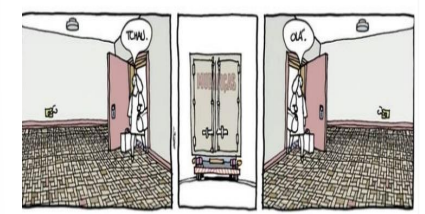Questões de Vestibular
Foram encontradas 69.760 questões
Resolva questões gratuitamente!
Junte-se a mais de 4 milhões de concurseiros!
Texto I

Laerte.
Disponível em: https://www.instagram.com/p/CWtk14SFixR/. Acesso em 19 jan. 2022.
Texto II
Mudam-se os tempos, mudam-se as vontades
Luiz Vaz de Camões
Mudam-se os tempos, mudam-se as vontades,
Muda-se o ser, muda-se a confiança;
Todo o mundo é composto de mudança,
Tomando sempre novas qualidades.
Continuamente vemos novidades,
Diferentes em tudo da esperança;
Do mal ficam as mágoas na lembrança,
E do bem, se algum houve, as saudades.
O tempo cobre o chão de verde manto,
Que já coberto foi de neve fria,
E em mim converte em choro o doce canto.
E, afora este mudar-se cada dia,
Outra mudança faz de mor espanto:
Que não se muda já como soía.
Disponível em: https://www.escritas.org/pt/t/2513/mudam-se-ostempos-mudam-se-as-vontades. Acesso em 17 jan. 2022.
Glossário:
Soía: costumava
Texto I

Laerte.
Disponível em: https://www.instagram.com/p/CWtk14SFixR/. Acesso em 19 jan. 2022.
Texto II
Mudam-se os tempos, mudam-se as vontades
Luiz Vaz de Camões
Mudam-se os tempos, mudam-se as vontades,
Muda-se o ser, muda-se a confiança;
Todo o mundo é composto de mudança,
Tomando sempre novas qualidades.
Continuamente vemos novidades,
Diferentes em tudo da esperança;
Do mal ficam as mágoas na lembrança,
E do bem, se algum houve, as saudades.
O tempo cobre o chão de verde manto,
Que já coberto foi de neve fria,
E em mim converte em choro o doce canto.
E, afora este mudar-se cada dia,
Outra mudança faz de mor espanto:
Que não se muda já como soía.
Disponível em: https://www.escritas.org/pt/t/2513/mudam-se-ostempos-mudam-se-as-vontades. Acesso em 17 jan. 2022.
Glossário:
Soía: costumava
Analise o excerto a seguir, extraído do Texto II, e assinale a alternativa INCORRETA.
“Mudam-se os tempos, mudam-se as vontades
Muda-se o ser, muda-se a confiança;”.
Texto I

Laerte.
Disponível em: https://www.instagram.com/p/CWtk14SFixR/. Acesso em 19 jan. 2022.
Texto II
Mudam-se os tempos, mudam-se as vontades
Luiz Vaz de Camões
Mudam-se os tempos, mudam-se as vontades,
Muda-se o ser, muda-se a confiança;
Todo o mundo é composto de mudança,
Tomando sempre novas qualidades.
Continuamente vemos novidades,
Diferentes em tudo da esperança;
Do mal ficam as mágoas na lembrança,
E do bem, se algum houve, as saudades.
O tempo cobre o chão de verde manto,
Que já coberto foi de neve fria,
E em mim converte em choro o doce canto.
E, afora este mudar-se cada dia,
Outra mudança faz de mor espanto:
Que não se muda já como soía.
Disponível em: https://www.escritas.org/pt/t/2513/mudam-se-ostempos-mudam-se-as-vontades. Acesso em 17 jan. 2022.
Glossário:
Soía: costumava
Texto I

Laerte.
Disponível em: https://www.instagram.com/p/CWtk14SFixR/. Acesso em 19 jan. 2022.
Texto II
Mudam-se os tempos, mudam-se as vontades
Luiz Vaz de Camões
Mudam-se os tempos, mudam-se as vontades,
Muda-se o ser, muda-se a confiança;
Todo o mundo é composto de mudança,
Tomando sempre novas qualidades.
Continuamente vemos novidades,
Diferentes em tudo da esperança;
Do mal ficam as mágoas na lembrança,
E do bem, se algum houve, as saudades.
O tempo cobre o chão de verde manto,
Que já coberto foi de neve fria,
E em mim converte em choro o doce canto.
E, afora este mudar-se cada dia,
Outra mudança faz de mor espanto:
Que não se muda já como soía.
Disponível em: https://www.escritas.org/pt/t/2513/mudam-se-ostempos-mudam-se-as-vontades. Acesso em 17 jan. 2022.
Glossário:
Soía: costumava
I. A charge da cartunista Laerte e o poema de estrutura não fixa de Camões relacionam-se de modo intertextual, uma vez que abordam uma mesma temática: mudanças.
II. O poema de Camões apresenta um eu lírico que se centra nas mudanças ocorridas na natureza, conforme se observa nos versos “O tempo cobre o chão de verde manto/ Que já coberto foi de neve fria”.
III. Na charge, apesar desta retratar um contexto positivo para a personagem ao evidenciar que todo fim (primeiro quadrinho) traz com ele um recomeço (terceiro quadrinho), Laerte convoca o leitor a refletir sobre a temática da solidão, já que apresenta a personagem solitária nos dois ambientes ilustrados.
IV. Com foco no indivíduo, a charge sugere que a mudança está em cada um, independente do local onde se estiver; já o poema propõe uma reflexão mais coletiva sobre o tema, como se pode confirmar no verso “Todo o mundo é composto de mudança”.
Read the following cartoon.

Internet: <www.baileyaplangandcomp.wordpress.com>.
The cartoon above conveys the idea that, in general, people.
are fooled as to their notion of freedom.
Read the following infographic.

Internet: <www.vricares.com> (adapted)
The text suggests that both professional help and changes at home are important to have better health and keep one’s independence.
Read the following infographic.

Internet: <www.vricares.com> (adapted)
In section 1, it would be correct to use Exercising instead of “Exercise”, which, despite causing a slight difference in meaning, would not change the message conveyed.
Read the following infographic.

Internet: <www.vricares.com> (adapted)
Based on the infographic presented, judge the follow item.
The infographic is meant to help people with serious illnesses to be more independent.
Read the following infographic.

Internet: <www.vricares.com> (adapted)
Section 3 is concerned with hygiene and cleanliness in people’s houses, which is why words such as “rugs”, “carpets” and “clutter” are mentioned.
Read the following infographic.

Internet: <www.vricares.com> (adapted)
In the sentence at the top of the infographic, the word “relinquish” could be correctly replaced with give up, which is more informal.
Read the following infographic.

Internet: <www.vricares.com> (adapted)
Based on the infographic presented, judge the follow item.
In the expression “As we age”, in the title of the infographic, “As” is used to present a reason or a justification.
Judge the follow item concerning the ideas and linguistic features of the previous text.
The last paragraph points out that a geopolitically construed notion of freedom has become a universally accepted one through international law.
In the excerpt “as the means for fulfilling other possible rights, like happiness” (in the last sentence of the second paragraph), the presence of “the” indicates that people’s happiness depends on them having their civil and political rights respected and guaranteed.
According to the ideas expressed in the text, “democratic freedom” (in the third sentence of the third paragraph) could be correctly understood as a situation in which people are free of unjustified governmental actions.
The expression “Broadly speaking” (second paragraph) indicates that what follows is a general take on the subject, without considering exceptions or specificities.
Judge the follow item concerning the ideas and linguistic features of the previous text.
In the last sentence of the first paragraph, the words “others” and “yours” are both in their plural form.
If the ideas defended in the text were applied to the global context of relations among countries, it would be correct to conclude that countries, in general, are never completely independent.
Judge the follow item concerning the ideas and linguistic features of the previous text.
For the author, given their universal and absolute character, human rights are one of the few exceptions to the limits imposed by the freedom of others.
The pronoun “themselves” (in the third sentence of the second paragraph) refers to “Some philosophers”, in the same sentence.
The word “Yet”, in the third sentence of the second paragraph, introduces a statement that stands in contrast to what the author writes about the creation of the Empire of Brazil in the preceding sentences.